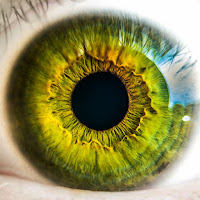Emergent properties - الخصائص الناشئة

هل فكرت يوما أنه من الممكن أن تكون جزءا من نظام لا تعلم عنه سوى القليل؟ هل تعلم أن معظم تصرفات الجموع المنظمه ناتجه عن قواعد محلية أقرب إلى البساطة منها إلى التعقيد؟ Credit: Wikimedia Commons فلننظر إلى أحد الأمثله: أسراب الطيور المنظمة. هل تعلم ان الطير الواحد في السرب لا يعلم -حقيقة- دوره في ذاك الشكل الجذاب للسرب؟ هل تعلم أن النمل, بكل ما هو عليه من تنظيم مبهر, لا يضع خططا معقدة ليجد أكثر الأماكن غنى بالطعام, و إنما ينجح في ذلك دون أن تعلم كل نملة على حدة ماذا حدث و كيف؟! قد تظن ان هذه الظاهرة (ظاهرة "الخصائص الناشئة") مثل تلك الظواهر البعيدة عن حياتك التي قد تتسلى بمشاهدة فيلم قصير عنها في الناشونال جيوغرافيك و أنت تتناول العشاء, لكنها في الحقيقة ظاهرة كونيه! إلى أي مدى؟ أكثر مما تتخيل. أنت تجسيد لتلك الظاهرة. هل تعلم اي من خلاياك عنك؟ هل عندما تقوم خلايا الكبد بوظيفتها بالتخلص من سموم الجسد, و خلايا القلب بالانقباض, و خلايا البنكرياس بإفراز الإنزيمات و الهرمونات, هل و هي تفعل كل ذلك تعلم نتيجة فعلها و فائدته للكائن الضخم المسمى بالـ "إنسان" ؟ و ا





